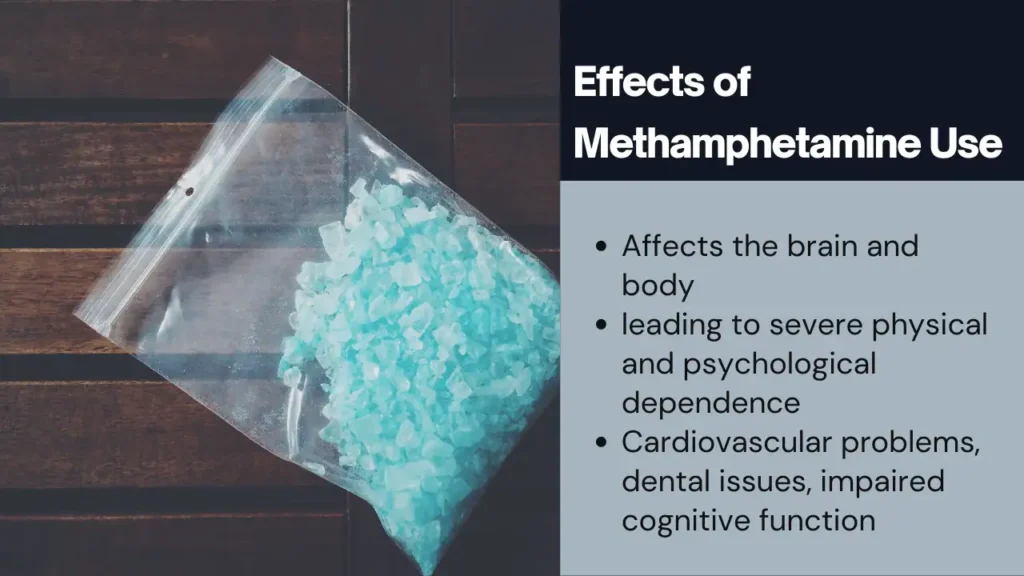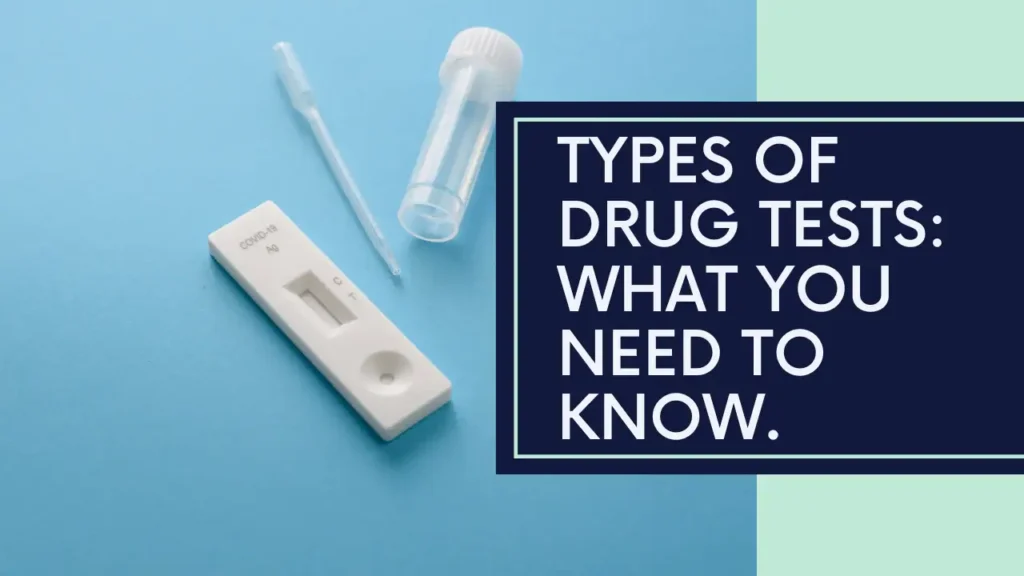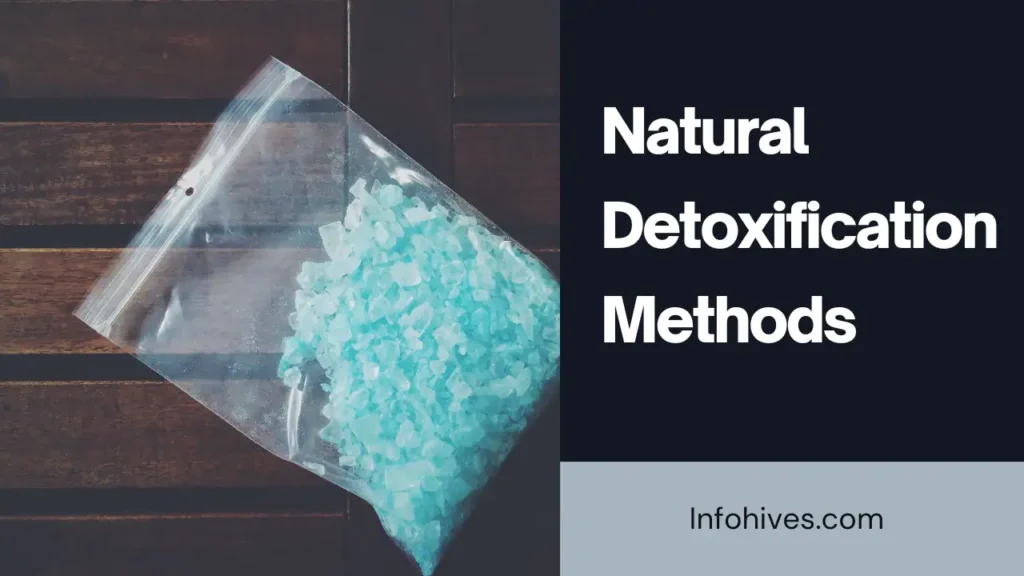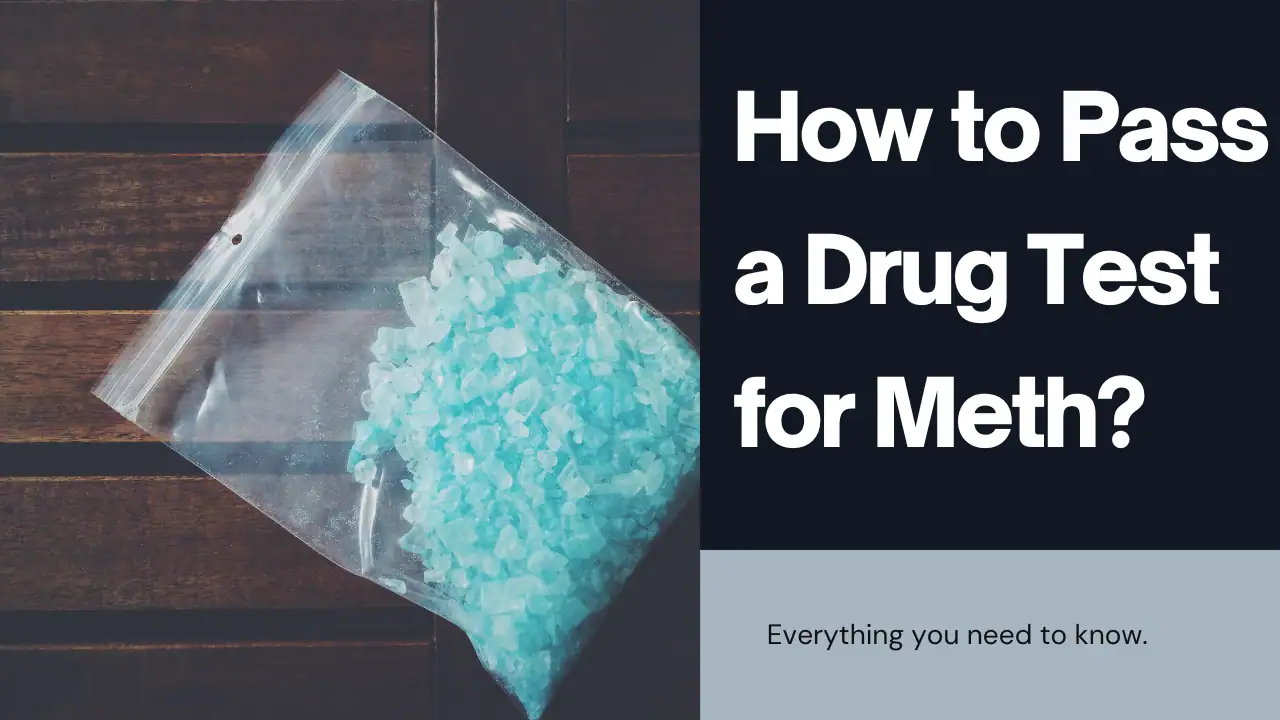Encountering a drug test can be daunting, particularly for individuals using substances such as methamphetamine. Whether prompted by employment screening, legal requirements, or personal health monitoring, drug tests are a reality for many. In this guide, we will navigate the methods available to ensure a negative outcome for a methamphetamine test. However, it’s crucial to approach this guide with the knowledge that safety, health, and legal considerations should always take precedence. Always consult with a professional when in doubt about the methodologies you adopt.
Table of Contents
Understanding the Importance of Drug Testing

Drug testing serves multifaceted purposes, including ensuring workplace safety, enabling rehabilitation, and maintaining personal health. It is an integral component of several industries, such as transportation and healthcare, and is often mandatory for employment or legal compliance. As such, the reliability and accuracy of these tests are vital, garnering significant attention and investment in research and technology.
The Detrimental Effects of Methamphetamine Use

- Methamphetamine is a highly potent central nervous system stimulant that affects the brain and body.
- It has a high potential for abuse and addiction, leading to severe physical and psychological dependence.
- Prolonged use of methamphetamine can result in a wide range of negative health effects, including cardiovascular problems, dental issues, impaired cognitive function, and mental health disorders.
- Recognizing and effectively managing methamphetamine use is of utmost importance for individuals and communities to promote overall well-being and prevent the devastating consequences associated with its misuse.
Types of Drug Tests

Drug tests come in various types and methodologies, each serving unique purposes and having different detection windows. Some of the most common types include urine tests, which detect recent drug use, blood tests, which can identify substances in the bloodstream, saliva tests, which are often used for immediate detection, and hair follicle tests, which can provide long-term drug use history. These different testing methods ensure a comprehensive approach to detecting and monitoring drug use.
The Preeminence of Urine Drug Testing
Urine tests are highly favored in various settings for their non-invasive nature, broad detection window, and remarkable accuracy. These tests serve as a reliable method to detect the presence of methamphetamine and its metabolites, offering a comprehensive analysis of an individual’s past drug use history. With their ability to provide valuable insights, urine tests play a crucial role in ensuring accurate and thorough assessment of drug-related situations.
How To Pass A Mouth Swab Drug Test For Meth
If you’re preparing for a mouth swab drug test and are concerned about the detection of methamphetamine, there are essential steps you can take to lower the chances of a positive result. Firstly, it’s important to understand that mouth swab tests, also known as saliva tests, are designed to detect recent drug use — typically within a few days. To increase your likelihood of passing:
- Abstain: The most reliable method is to refrain from using methamphetamine or any substances. A minimum of 48-72 hours is commonly suggested to clear the drug from your saliva.
- Oral Hygiene: Maintain rigorous oral hygiene by brushing your teeth thoroughly multiple times a day, focusing on the gums, teeth, and tongue to remove any potential drug residues.
- Hydration: Drink plenty of water to help cleanse your system and keep your saliva clean. Hydration can dilute the concentration of drugs in your saliva.
- Healthy Diet: Consuming a healthy diet rich in vitamins and nutrients supports your body’s natural detoxification processes.
- Mouthwash Products: Some specialty mouthwashes claim to help cleanse your mouth of drug toxins. Be cautious with these items and seek out reputable products with positive user reviews.
How To Pass A Urine Drug Test For Meth
Passing a urine drug test when methamphetamine use is in question involves several strategic actions. Detoxing your body becomes imperative to rid it of any traceable residue of drugs. Here are some approaches:
- Time Abstinence: The body naturally eliminates methamphetamine in about 3-7 days. Stay abstinent for at least a week before the test to increase your chances of passing.
- Increase Fluid Intake: Drink water and other liquids like green tea to help flush the body and expedite the removal of toxins. However, avoid overhydration as excessively diluted urine may raise suspicion.
- Diet and Exercise: Stick to a diet rich in leafy greens and whole foods while engaging in regular exercise to boost metabolism, which can help speed up the excretion of drugs.
- Consider Detox Kits: There are over-the-counter detox kits and drinks that promise a ‘clean’ urine sample. It is essential to select reputable products, considering some may not be reliable. It’s also crucial to research the legality in your area, as some jurisdictions may have laws against such products.
While the above tips can be helpful, they come with no certainty of success and vary from person to person. It’s also important to note that tampering with urine samples or attempting to cheat on a drug test is illegal and comes with serious consequences. The most effective way to pass a urine drug test is to not ingest methamphetamine or any other illegal substances.
Urine Test Alternative: Detox Drinks For Meth
In the quest to cleanse the body of methamphetamine, many individuals turn to various detox drinks designed to purge toxins from the system. These specialized beverages often contain a blend of natural ingredients like herbs, vitamins, and minerals that aim to stimulate the body’s detoxification processes. Products like Rescue Cleanse and Mega Clean tout benefits that potentially reduce the concentration of drug metabolites detectable in urine.
It’s imperative to evaluate the claims of these detox drinks with a critical eye. Scientific consensus on their efficacy is mixed, and results can significantly vary from person to person. To assess the suitability and safety of these drinks, it’s advisable to conduct thorough research and consult health resources or professionals.
It is also recommended to review user testimonies and check for any scientific backing before trying a detox drink. Keeping well-informed can prevent unexpected outcomes and ensure the chosen method aligns with health standards.
Remember that the market for detox solutions is not strictly regulated, so due diligence is crucial when selecting products that claim to aid in passing urine tests. It’s not just about selecting a drink; it’s about making an informed health decision.
How to Pass a Blood Test for Meth
When it comes to blood tests, methamphetamine can be detected for a relatively short window of time, generally up to 48 hours after use. However, the best strategy for passing a blood test is the same as with urine tests: avoid using methamphetamine or any other illicit substances. For those seeking to clear their system, the body relies on its natural detoxifying processes to eliminate the drug.
Hydration is key, as drinking plenty of water can aid the kidneys in flushing out toxins. Additionally, engaging in regular exercise can boost metabolism, potentially speeding up the detoxification process. However, extreme measures or unproven “quick fixes” should be avoided, as they can be dangerous and generally lack scientific support.
How Drug Tests Detect Methamphetamine
Methamphetamine, commonly known as meth, can be detected through various methods. These detection methods primarily rely on the presence of its metabolites in the body, such as amphetamine and p-hydroxymethamphetamine. These metabolites serve as reliable markers for identifying methamphetamine use, aiding in drug testing and forensic investigations.
Methamphetamine Metabolites and Detection Times
The primary metabolite, amphetamine, has a half-life of up to 15 hours, while the secondary metabolite, p-OH-amphetamine, has a notably longer half-life and can be detected for several days. Understanding metabolite presence guides the timing for taking the test and aids in implementing effective strategies for passing.
Factors Affecting Drug Test Results
Multiple factors come into play when it comes to the accuracy of a drug test. Each factor holds its significance, demanding careful thought from those aiming to manipulate the test results.
Metabolism: A Key Player
Individual metabolic rates significantly influence the detection window. A faster metabolism can result in quicker elimination of drugs, while a slower metabolism can lead to an extended detection period.
Frequency and Amount of Use
Chronic, heavy methamphetamine use results in higher levels of metabolites in the system, extending detection periods. Conversely, sporadic use leads to lower concentrations and shorter detection times.
Body Weight and Hydration Levels
Body weight impacts drug detection, with higher concentrations stored in fat cells. Hydration influences dilution methods, with varying effectiveness based on individual water content and retention levels.
Methods to Pass a Drug Test for Meth
A variety of strategies are employed to attempt to pass a drug test, each with its level of effectiveness and applicability.
Natural Detoxification Methods

Abstaining from methamphetamine use and adopting a healthy lifestyle that promotes the natural detoxification process is an initial and critical step.
Diet and Hydration
Enhancing nutrition and increasing water intake can support a more efficient detoxification process, effectively reducing drug metabolites in the system.
Dilution Techniques
Dilution aims to reduce the concentration of drug metabolites in the urine sample below the detection threshold.
Hydration
Consuming large volumes of water before the test can dilute the urine, potentially rendering the drug test inconclusive. However, excessive dilution is usually evident and could raise suspicion or lead to a failed test.
Specific Gravity and Creatinine Level Manipulation
Specific gravity and creatinine levels are measurement markers for urine integrity. Adjusting these levels through electrolyte or creatine supplements can make diluted samples appear more concentrated, though this presents ethical and procedural concerns.
Detox Products and Kits
A variety of over-the-counter products and kits claim to aid in passing drug tests by masking the presence of methamphetamine.
Herbal Cleanses and Supplements
These products suggest that herbs and supplements can speed up the body’s natural detox process; however, scientific evidence supporting their effectiveness is scarce, and some can be harmful.
Masking Agents
Certain substances, like niacin (vitamin B3), are believed to mask methamphetamine in urine. However, these do not eliminate the drug; rather, they may render the test inconclusive, necessitating a retest under suspicion.
Substitution Methods
Perhaps the most controversial and risky approach to passing a drug test is substituted urine. This involves using a synthetic or donor-provided urine sample in place of your own.
Synthetic Urine and Adulterants
Synthetic urine, when of high quality and correctly prepared, can effectively mimic drug-free human urine. Adulterants may also be used to tamper with a sample, but detection kits are increasingly able to identify these.
Tips and Precautions
Engaging with drug test evasion methods requires careful thought and consideration of the potential risks and ethical implications.
Legal and Ethical Considerations
Employing deceptive means to pass a drug test is generally considered unethical and can have legal ramifications, particularly if mandated by a workplace or court.
Risks and Limitations of Techniques
Each method presents unique risks, such as health complications from detox products, sample temperature discrepancies with substituted urine, or detection failure for adulterated samples. Understanding these risks is crucial for informed decision-making.
Consult a Professional
When considering how to pass a drug test, especially for meth, consulting with a professional, such as a healthcare provider or legal counsel, can provide you with valuable insights and reduce potential hazards involved in evading a drug test.
Addressing Common Questions and Myths
A nuanced understanding of drug testing is crucial for dispelling myths and providing accurate information.
Common Misconceptions About Passing a Meth Test
Misconceptions around the ability of masking agents to eliminate drug metabolites and the infallibility of substitution methods can lead to poor outcomes and unnecessary risks.
Frequently Asked Questions (FAQs)
Can drinking lots of water help me pass a meth drug test?
While staying hydrated is generally good for your health, excessive water intake in an attempt to dilute urine can be detected during drug testing and may raise suspicions. Laboratories often test for dilution by checking the specific gravity and creatinine levels of the sample.
How long does methamphetamine stay in the system?
The length of time meth remains detectable in the body depends on various factors including metabolism, frequency of use, dose, and the type of drug test used. Generally, it can be detected in urine for 1 to 4 days after use, but may remain in hair follicles for up to 90 days.
Are home remedies effective in passing a meth drug test?
No home remedy has been scientifically proven to remove methamphetamine or its metabolites from your system rapidly. Many home remedies are based on myths and can be ineffective or even harmful.
Is it possible to “cheat” a drug test with synthetic urine?
While synthetic urine products exist that claim to replicate human urine, risk of detection is high. Laboratories today are equipped with sophisticated systems that can often distinguish between synthetic and genuine human urine.
What should I do if I have used meth and am facing a drug test?
The safest and most responsible approach is to abstain from further drug use and discuss your situation with a healthcare professional or legal counsel for guidance on the next steps. It’s important to prioritize honesty and health over attempting to manipulate a drug test.
Conclusion
Navigating drug tests, particularly for methamphetamine use, requires a layered approach that is as ethical as it is effective. While there are various methods to mask or eliminate drug metabolites, each comes with its set of risks and limitations. It is vital to be fully informed about the consequences of using these methods and to consider the broader impact on personal and professional integrity.






